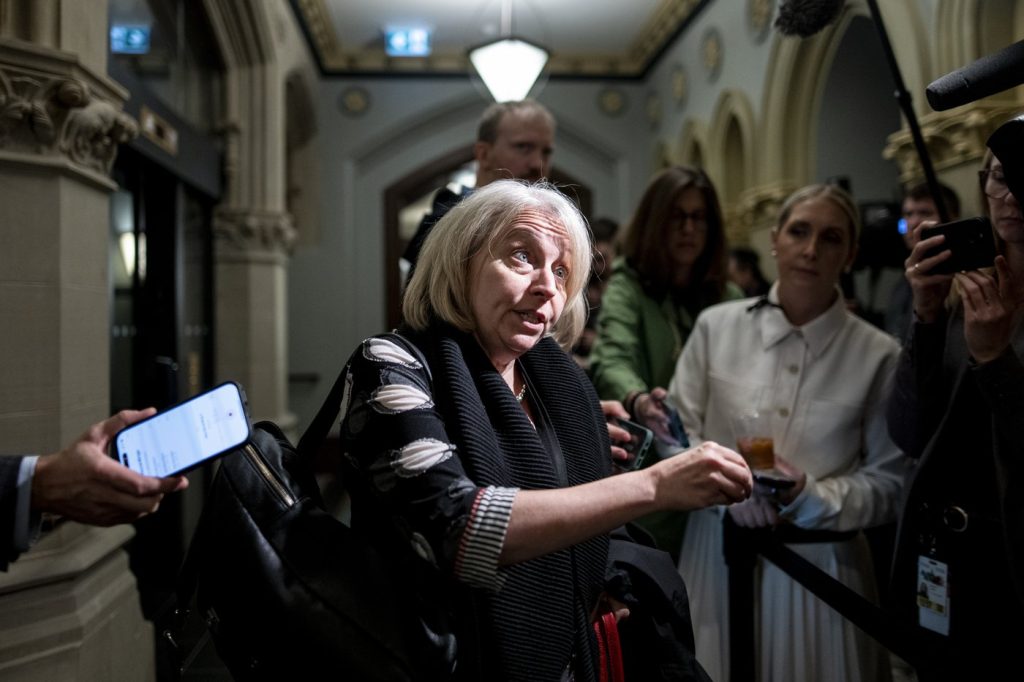OTTAWA — The Liberal government's attempt to revise Canada's national security strategy encountered significant challenges earlier this year, as revealed by a newly released memo. John Hannaford, then-Privy Council clerk, informed Prime Minister Mark Carney that many assumptions guiding the development of the strategy were “no longer valid” due to changes in Canada’s strategic environment.
The memo, dated March 20, highlighted the need for a reconsideration of the draft document largely because it was based on outdated premises. The Canadian Press obtained this memo through the Access to Information Act. This communication was sent to national security and intelligence adviser Nathalie Drouin shortly after Carney was inaugurated as prime minister, following his victory in the Liberal leadership race on March 9 amid controversial tariffs imposed by U.S. President Donald Trump on Canadian goods and his threats regarding Canada's statehood.
Canada's previous comprehensive national security policy dates back to 2004 during Paul Martin's government. In April 2024, Justin Trudeau’s administration announced a commitment to developing a national security strategy every four years, aiming for a more systematic approach to assess evolving security environments and their implications for Canada. Trudeau's mandate to Drouin in November 2024 emphasized the need for a renewed strategy by 2025, focusing on a cohesive framework for national security, defense, and diplomacy while engaging Canadians across the country.
Responding to inquiries, Privy Council Office spokesman Pierre-Alain Bujold stated that while specifics from Hannaford’s memo could not be disclosed, it was evident that the geopolitical and security landscape was increasingly complex, marked by substantial developments. He noted that the “rules-based international order is shifting,” indicating that Canada must continuously reassess its threat landscape to effectively address new challenges.
At a recent cabinet planning meeting, Carney mentioned that a new national security policy would be released “in due course.” He acknowledged to the media that the global landscape poses greater dangers today compared to the 1990s and early 2000s, citing shifting power dynamics and alliances as critical factors contributing to these emerging risks.
Intelligence expert Wesley Wark from the Centre for International Governance Innovation suggested that the development of the national security strategy has been hindered by “conflicting desires.” Officials seek to convey a meaningful policy rooted in national interests while simultaneously avoiding tensions with the U.S. amid ongoing trade negotiations. Wark expressed doubt that the document would be released soon, stating, “There is zero political gain to release it.”
Vincent Rigby, a former security and intelligence adviser to the prime minister, urged that the existence of trade tensions with the U.S. should not inhibit the creation of a new national security strategy. He pointed to the unpredictable global climate over the past several years, identifying conflicts in Europe and the Middle East, aggressive actions from China, and threats posed by Iran and North Korea as significant concerns for Canada.
According to Rigby, threats such as foreign interference, espionage, and cyberthreats are becoming more prevalent, underscoring the urgent necessity for a national security strategy. He noted that there has been a long-standing resistance within the government to formulating a comprehensive security strategy due to concerns that such documents have short-lived relevance. Rigby advocated for a flexible strategy capable of adapting to unforeseen events, likening it to a roadmap for navigation.
Carney's acknowledgment of a changing relationship with the United States suggests that any forthcoming national security strategy will address the complexities of these relations while reaffirming Canada’s commitment to its ally. Despite the political risks involved, Rigby expressed confidence that these challenges could be managed in developing the strategy.











